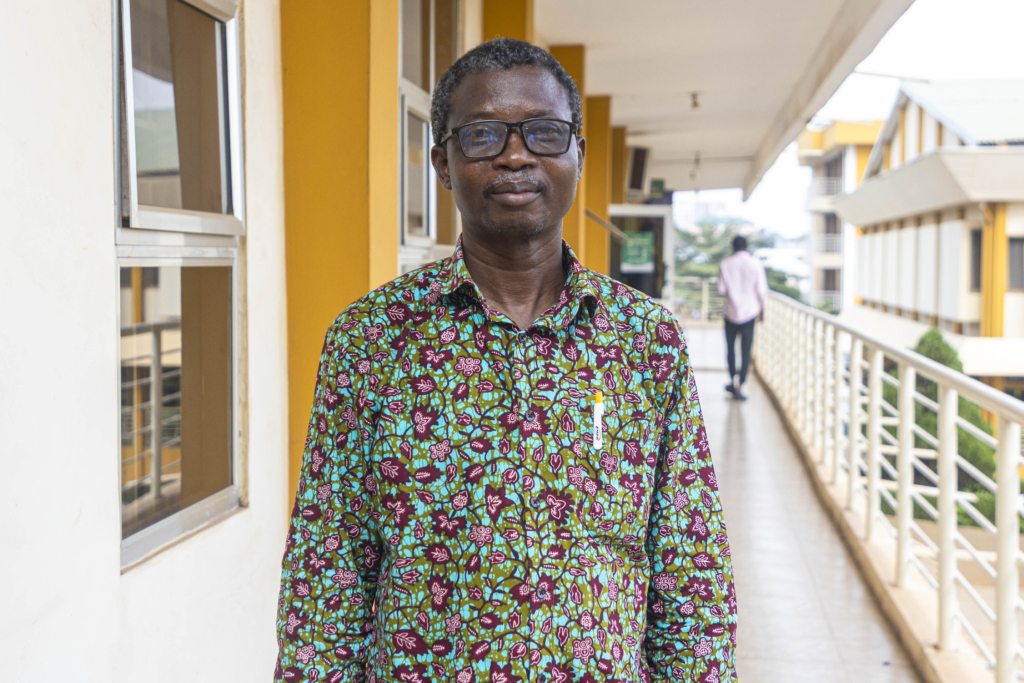Researchers at the Mechanical Engineering Department of Kwame Nkrumah University of Science and Technology (KNUST) in Kumasi have developed a locally-built machine designed to test the strength of various materials.
This new equipment christened, TechStress TS-50, aims to eliminate the need for importing foreign-made machines for testing materials like fibers, metals, and plastics.

The lead scientist, Professor Yesuenyeagbe Fiagbe, explained that the project was born out of the need to study the properties of fibers in Ghana.
Initially, the team thought about buying a testing machine, but they realized they had the knowledge to build one locally. This led to the creation of a highly accurate, flexible testing machine that can be used in various industries.
“This machine can test not only fibers but also metals and plastics, giving accurate measurements of their strength and properties,” Professor Fiagbe said.
What makes this machine special is its ability to collect and store data with very high accuracy.
“The accuracy of this machine is as precise as 0.0004, allowing for detailed testing of even the smallest fibers,” he added.
The machine is equipped with advanced sensors, a touch screen, and electronic parts to make it easy to use and efficient.
Its high accuracy and ability to collect data make it an important tool for industries that need to test the strength of materials, such as cable manufacturing and wire production.
“For industries that produce cables and wires, it’s important to ensure materials meet the required standards over time. This machine provides a reliable way to perform these tests, making it essential for quality checks,” Professor Fiagbe explained.
Beyond its industrial applications, the machine is also expected to benefit educational institutions.
“This machine will be useful in science labs, especially for experiments on material strength and stretching,” Professor Fiagbe noted.
Professor Fiagbe also thanked Mr. George Ansong, a Research Assistant, who played a key role in developing the machine.
DISCLAIMER: The Views, Comments, Opinions, Contributions and Statements made by Readers and Contributors on this platform do not necessarily represent the views or policy of Multimedia Group Limited.
Tags:

